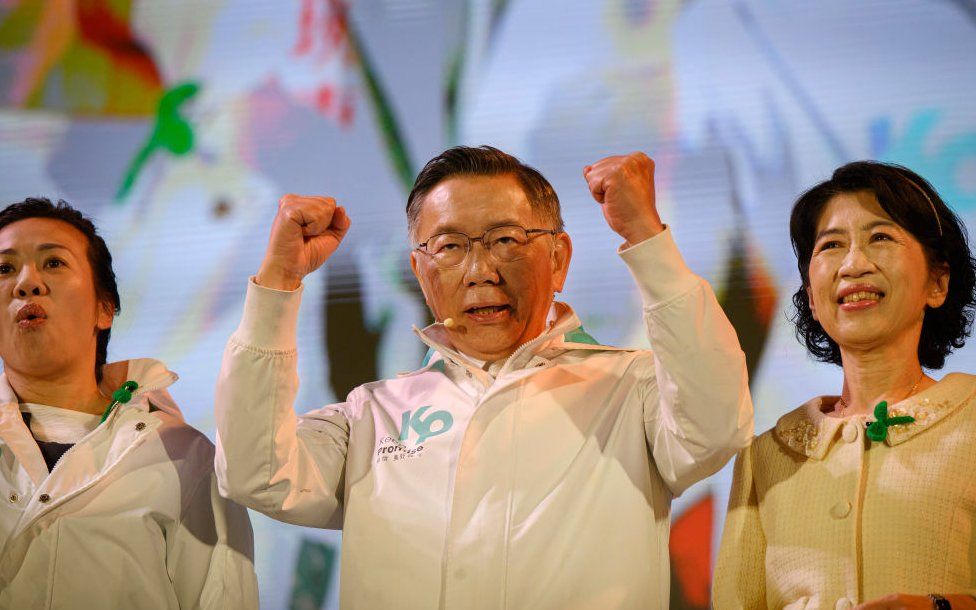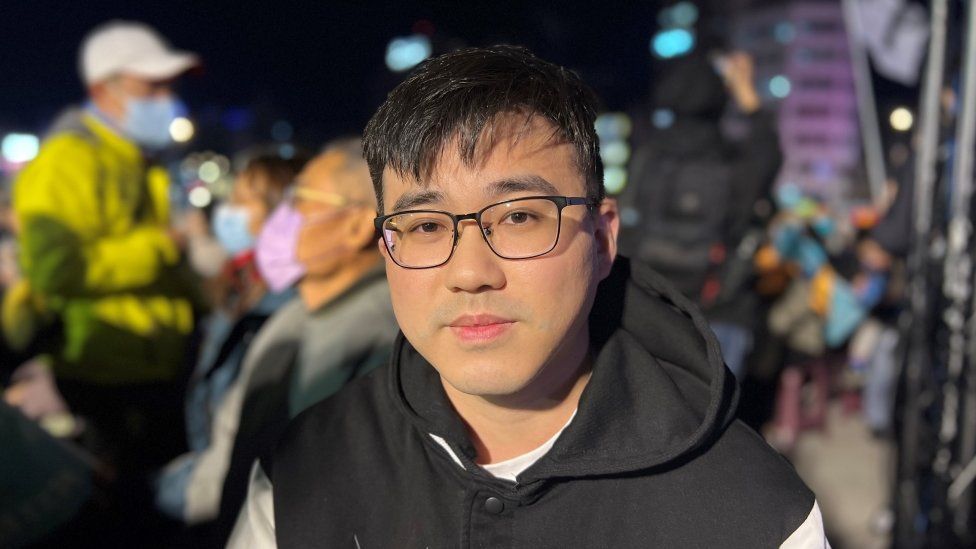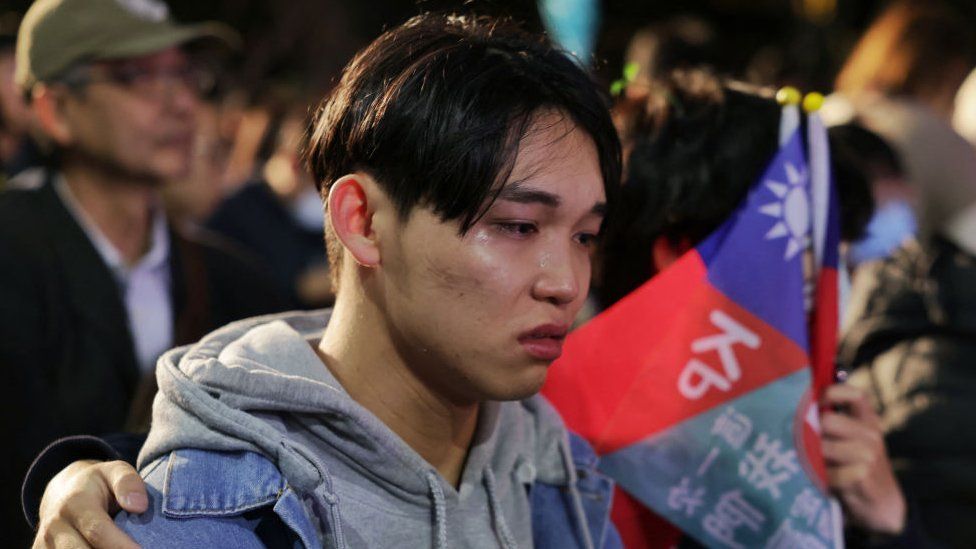
By Tessa Wong
BBC News, Taipei
On Saturday, more than a quarter of Taiwan’s voters, including many young people, chose maverick politician Ko Wen-je in the presidential poll.
And in the legislature elections, his fledgling Taiwan’s People Party (TPP) won eight seats which could wield power in a parliament where no-one has won the majority.
While the TPP’s gains are modest and Mr Ko himself came in last, observers say he has irrevocably altered Taiwan’s political landscape – long dominated by two parties, the Kuomintang (KMT) and Mr Lai’s Democratic Progressive Party (DPP).
“It’s now no longer a two horse race, it’s a three horse race,” said Wen-ti Sung, a political scientist and non-resident fellow with the Atlantic Council’s Global China Hub.
Though Mr Ko, a former mayor of Taipei, is a seasoned politician, this was his first stab at the presidency.
He campaigned on a platform of “taking down the blue and green” – blue is the KMT’s colour and green is the DPP’s – while positioning himself as the middle option on issues such as cross-strait relations.
Since 2016 there have been other outlier parties that have made headway in polls.
But the TPP’s performance is the clearest sign yet of voters demanding a more pluralistic political landscape, say observers, and it is driven by passionate young Taiwanese.
Many youths were visibly upset at Saturday’s result, with some even alleging electoral fraud online.
Part of the attraction was Mr Ko himself, a straight-talking politician who could break out into the occasional rap. Young people found him quirky and endearing, though he has also been criticised for comments perceived as sexist and homophobic.
But young voters are also impatient with a political system that has yet to solve longstanding economic issues such as low wages and costly housing that have hit younger generations disproportionately hard.

“The era of the DPP and the KMT has been ended by a new party. It’s time for a younger generation to arise, and the TPP seems fresher to me,” Mr Huang, a 28-year-old soldier, told the BBC.
This demand for more alternatives “is not so high that it would shatter the political system, but it pushes the other parties to see how they can appeal to a broader electorate,” said Lev Nachman, a political scientist with the National Chengchi University.
But it also gives the TPP an advantage that could propel it further and turn it into “the second political power” in Taiwan, said Mr Sung. Mr Ko’s vote share was only seven percentage points lower than that of the KMT’s candidate Hou Yu-ih.
But that’s only if it plays its cards right.
“The TPP has strong support, but the question is can it be sustained?” said Ian Chong, a non-resident fellow with Carnegie China. “This would depend on how it strengthens its teams on the ground as well as its performance in the legislature and the values, policies and ideals it proposes.”
Currently the TPP’s support capitalises on voter unhappiness while leaning heavily on Mr Ko, he noted.
“Personalities are important for a social movement. But you also need to sustain it beyond that, and continually attract supporters with your ideas.”
“I think Ko after this has to cultivate the party more,” said TPP supporter Harrison Wu. “He also knows this is a one-man party, he has to develop successors – after all he is 64 years old already.”

On Saturday night after he conceded to Mr Lai, Mr Ko acknowledged the long road ahead while signalling he was here to stay.
“I’m asking you all to not give up, because I won’t give up, https://horeoraduwe.com/the TPP won’t give up,” he told his supporters, some of whom were sobbing. “Tonight, I know you are all very sad. But we actually don’t have time to be sad.
“If we diligently continue, in the next four years I believe we will win even more recognition, and gather even more power. Next time we will govern, and definitely win back this country.”